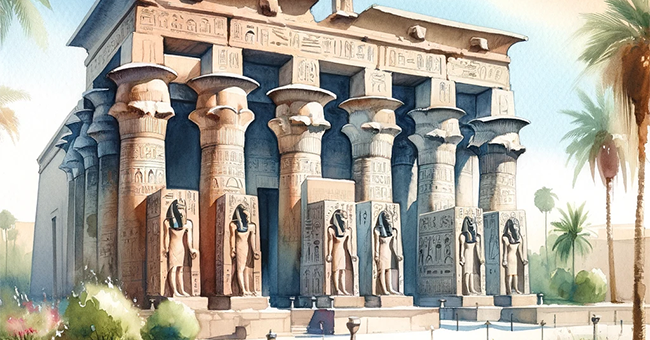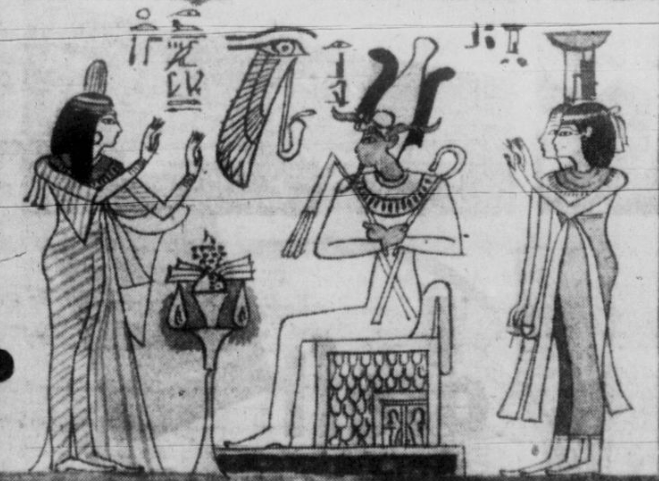
In the pantheon of ancient Egyptian deities, Hathor stands out as a symbol of love, beauty, maternity, and music. Adored for her nurturing presence, she was also revered as the “Mistress of the West,” welcoming the dead into the next life.
This multifaceted goddess’s influence spanned across dynasties, embodying the complexity and richness of Egyptian mythology.
Origins and Historical Significance
Hathor’s origins trace back to the early dynastic period, with her worship possibly predating the unification of Upper and Lower Egypt.
Her name, meaning “House of Horus,” reflects her deep connections with sky deities and her role as a protector.

Roles and Associations
As a mother goddess, Hathor was invoked by women to aid in childbirth and fertility, reflecting her life-giving and nurturing aspects.
Her joyful, benevolent nature was celebrated in music and dance, aspects she herself governed.
Hathor’s protective streak was seen in her association with Sekhmet, the lioness goddess of war, highlighting her capacity for both nurture and wrath.
Symbols
The cow horns with a sun disk resting between them represent Hathor as a celestial goddess.
The sistrum, a musical instrument, underscores her association with joy and festivity.
The menat necklace, a symbol of rebirth and fertility, was often used in her worship, signifying her life-giving power.

Worship
The worship of Hathor was widespread, with her temples dotting the Nile landscape.
The most famous of these, the Temple of Hathor at Dendera, is an architectural marvel that offers insight into her worship’s complexity and richness.
Festivals such as the Feast of the Valley were communal celebrations that reinforced her role in the community, blending aspects of the sacred and the everyday.
Influenced Greek and Roman Mythology
Hathor’s legacy extends beyond the sands of Egypt. Her influence was felt in the Greco-Roman world, where she was equated with Aphrodite and Venus.

